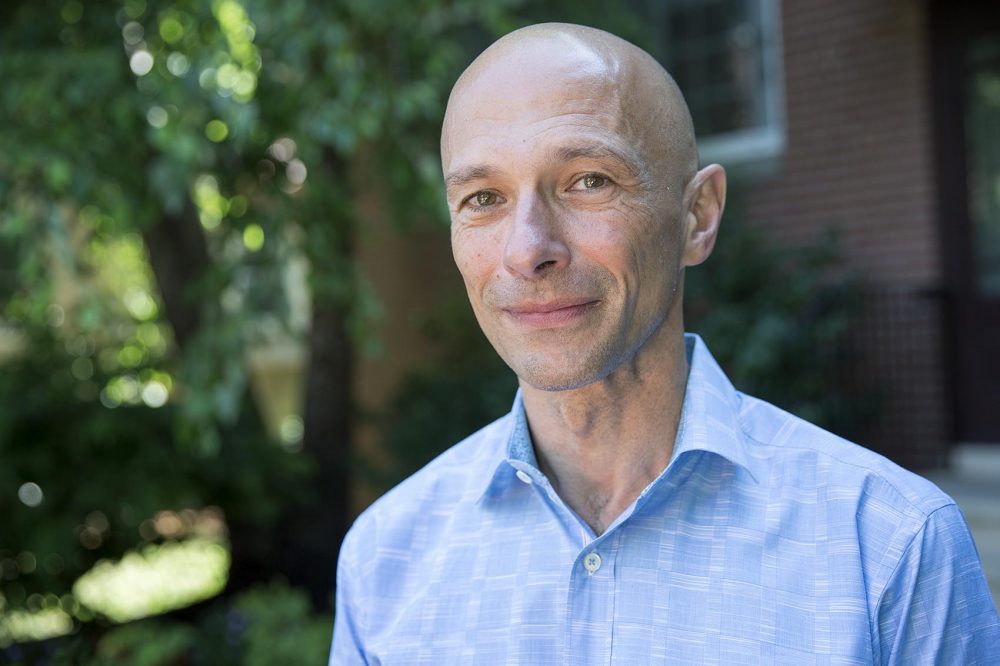[This article was originally published by WBUR Bostonomix]
Semyon Dukach is a serial entrepreneur. In 1997, he started Fast Engines, a company that produced performance enhancing software for online apps. He sold it for $35 million in 2000 — when he owned a nearly 50 percent stake in the company, according to Forbes. Then, he became a prominent angel investor and went on to lead TechStars Boston, the most prestigious startup accelerator in town. Now, he’s working on a new project, One Way Ventures — a venture capital fund specifically for immigrant founders.
BostonomiX caught up with Dukach to talk about One Way, the challenges facing immigrant entrepreneurs and blackjack. Here are some highlights (edited):
Why He Started A Fund That Targets Immigrant Founders
The fund is especially important to Dukach, who came to the United States as a refugee from the Soviet Union in 1979. “I was fortunate,” he said. “I got a lot of assistance, including public housing and food stamps and have gotten a great education here.”
“It’s the right of people to choose their own identity, to go anywhere and have equal opportunity.” Semyon Dukach
“The world needs more immigrant founders [to build] companies and [get] funded because immigration is freedom,” Dukach said. “It’s the right of people to choose their own identity, to go anywhere and have equal opportunity”
Dukach will lead the firm with Eveline Buchatskiy, the former director of the TechStars Boston program and an immigrant from Brazil. One Way’s funding mission isn’t limited to first-generation immigrants. Dukach says it will also fund companies founded by individuals whose “personality has been shaped by an immigration experience.”
Dukach says American attitudes toward immigrants are “temporarily depressed.” Earlier this month, the Trump administration delayed the effective date for the “startup visa” program — a way for the Department of Homeland Security to allow some immigrant founders to stay in the U.S. to grow their businesses. That decision troubled Dukach. “Those people who qualified for that visa were basically about to create the jobs,” he said. “They were companies that already had funding lined up who have to leave now.”
The Immigrant Experience As A ‘Strong Training Ground For Entrepreneurial Success’
Dukach sees immigrants in the United States as extraordinarily resilient. “It’s a difficult personal struggle…to land, and to be disadvantaged and to be confused and to not know the rules but to still prevail,” he said. For Dukach, the challenges of coming to a foreign country as an immigrant are akin to the challenges founders face when they’re trying to launch a startup and a grow a business.
“When the company realizes it’s playing in a market where it doesn’t know the rules of that market or the big companies, and yet it needs to somehow beat them and win… [the immigrant] experience better prepares [entrepreneurs] for the struggles of building a business,” Dukach said.
The data seems to support Dukach’s hypothesis. Fifty-one percent of startups valued at a billion dollars or more had at least one immigrant founder, according to a study by the National Foundation for American Policy. In Massachusetts, 58 percent of Fortune 500 companies were founded by immigrants or their children.
Why He Chose Boston For One Way’s Launch
Dukach came to the area for graduate school at MIT in 1990. He stuck around, and 27 years later decided to launch One Way in Boston. He likes the city’s tech vibe because he insists “there’s a little bit less marketing spin and a little bit more meat.” One Way will focus on Boston and New York initially, but its intent is to be global. Dukach said the fund’s mission is to help immigrants, and “ultimately, to have a world with no borders, and no restrictions, where all people have equal opportunity.”
On Leading ‘The Amphibians,’ His Blackjack Team At MIT
Dukach smiled when he talked about spending three years winning money by playing blackjack in the 90s (for more about these teams, read this article from the BBC). “Ultimately I found it to be exciting and lucrative, but not very fulfilling, in that we didn’t create any value,” he said. “Like in a technology company, you have customers, and they don’t just pay you, they thank you. Whereas in blackjack we just moved money from people we didn’t really like to ourselves. It was kind of cool, but it wore off pretty fast.”
